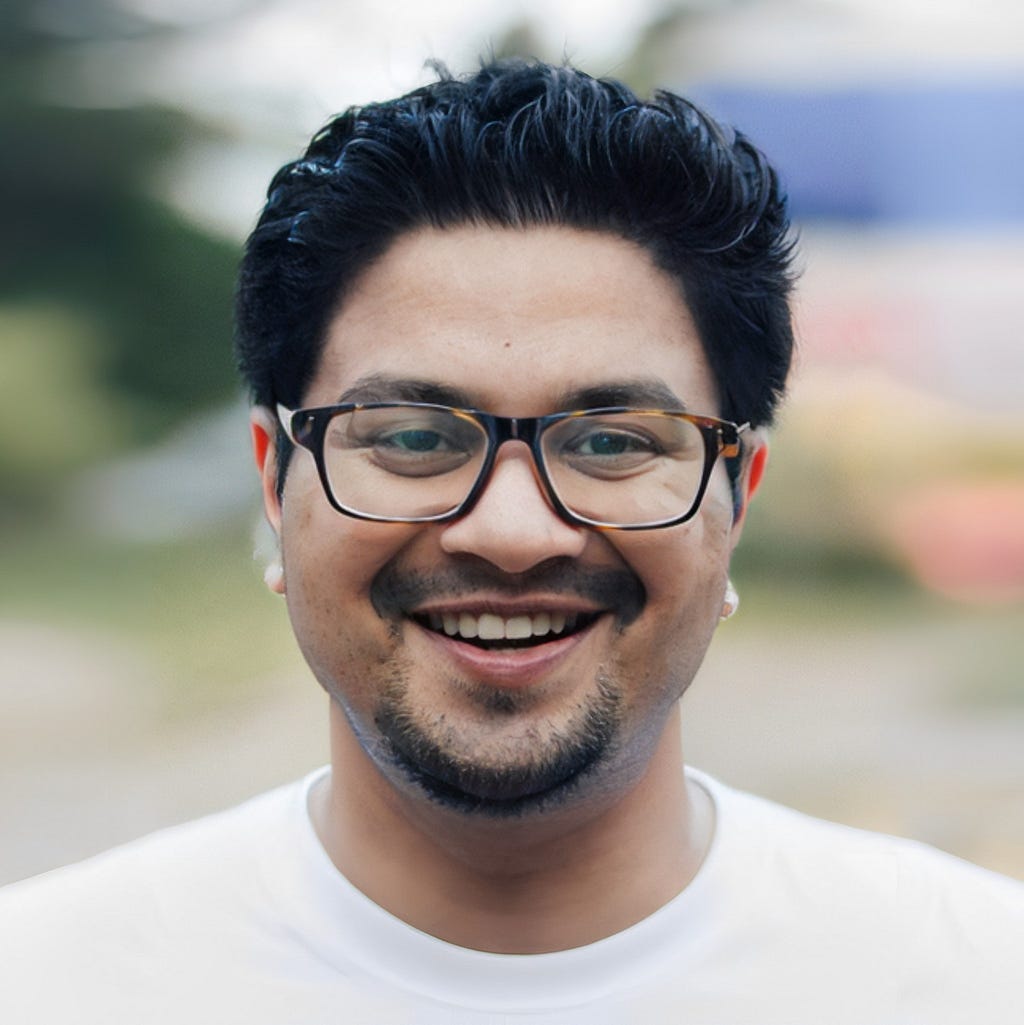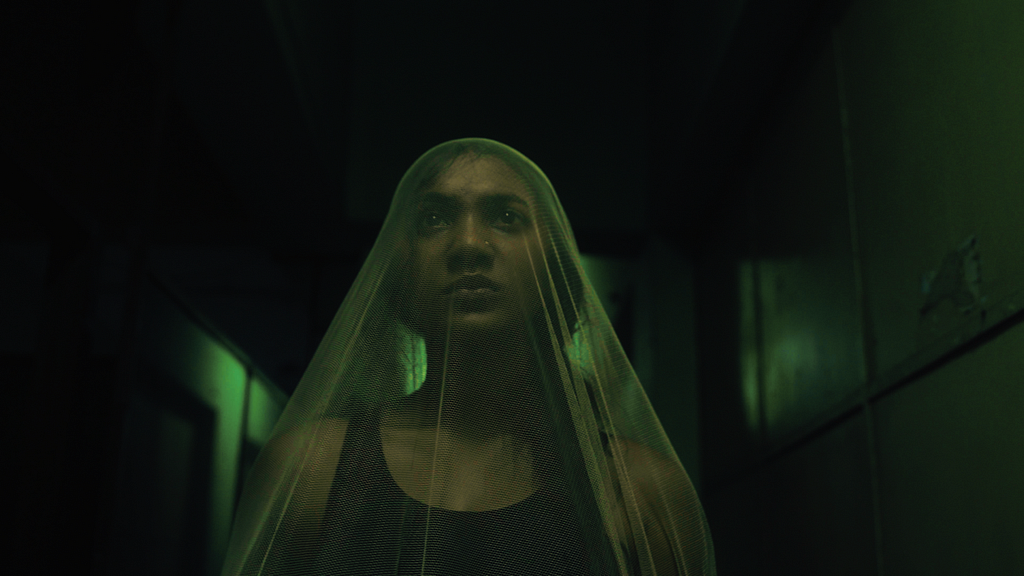
‘EVERYONE is gonna give you advice. You don’t have to take all of it.’ When I was starting out, everyone said no to me and my ideas. I just got a mix of a contradictory advice. I had to learn to pick and choose what to take — some people are jaded and bitter even if they mean well. Their advice comes from their failures. But maybe where they failed you can succeed.
As a part of our series called “5 Things I Wish Someone Told Me When I First Became A Filmmaker”, I had the distinct pleasure of interviewing Nuhash Humayun.
Bangladeshi writer/director Nuhash Humayun has an undying love for blending genres with South-Asian identity. His credits include the anthology ‘Sincerely Yours, Dhaka’ (World Premiere at Busan International Film Festival; acquired by Netflix). His upcoming feature debut, ‘Moving Bangladesh’, has received support from the Sundance Institute, Film Independent, the Sloan Foundation, Cannes Marche du Film, Locarno Open Doors & NFDC Film Bazaar. His short film ‘Moshari’ is the first Bangladeshi film to ever win an Academy-qualifying Award: it was awarded two Oscar®-qualifying awards at Atlanta Film Festival and Short Shorts & Asia, in addition to winning the Grand Jury at SXSW where the Bangladeshi short premiered. The short also took home the Best Horror Award at Hollyshorts Film Festival, the Best Short Fiction Award at Melbourne International, and the Audience Award at Fantasia.
Thank you so much for joining us in this interview series! Our readers would love to get to know you a bit better. Can you tell us a bit of the ‘backstory’ of how you grew up?
I grew up in Dhaka, Bangladesh. Lived there my entire life.
Can you share a story with us about what brought you to this specific career path?
My mother bought a “family digital camera” when I was thirteen and I discovered it had a video function where you could record one minute videos. I’ve been making short films with my friends ever since.
It’s how I made friends and how I communicated my feelings to the world. That hasn’t changed.
Can you share the funniest or most interesting story that occurred to you in the course of your filmmaking career?
I have zero funny stories from on set — it’s never funny in the moment, it’s devastating. It’ll probably be funny years and years later.
Who are some of the most interesting people you have interacted with? What was that like? Do you have any stories?
I was filming a series based on ancient South Asian superstitions. The particular episode was about local folklore, about witch-like creatures called Petnee who love fish — according to superstition, the creatures would attack fishermen in the middle of the night in search of fish.
When our actor was done with their makeup as the Petnee, a member of our crew objected. Turned out a member of our camera team used to be a fisherman once. He felt very strongly that our “look” for the Petnee wasn’t right — her hair needs to be messier and dirtier.
I delayed the entire production by a few hours just to listen to his thoughts. He was so passionate about how the design should look, all based on stories he had heard from other fishermen. People like him are the entire reason we tell stories, so they pass from one to another!
None of us are able to achieve success without some help along the way. Is there a particular person who you are grateful towards who helped get you to where you are? Can you share a story about that?
Definitely my mother. My father was a filmmaker so him and I would watch a lot of films together. My mother helped me make my films.
Can you please give us your favorite “Life Lesson Quote”? Can you share how that was relevant to you in your life?
At my middleschool parents-teachers conference, my math teacher once said that I have a lot of potential. I was kind of giddy but my mom wasn’t happy with the teacher’s comment at all.
“It’s not enough to have potential. Everyone has potential, it’s what you do with it.”
I am very interested in diversity in the entertainment industry. Can you share three reasons with our readers about why you think it’s important to have diversity represented in film and television? How can that potentially affect our culture?
When my Bangladeshi fantasy/horror short film MOSHARI released at SXSW 2022 and won the Jury Award, I found out from Twitter and Instagram. I had South Asian artists, filmmakers and audiences reach out telling me how cool it was for them seeing themselves represented in a genre film like this.
Films are empathy machines. They help us make sense of the world and they can be an access point for places we haven’t visited.
When stories have good representation, it can inform us and make us kinder. Stories can do what facts and numbers often can’t.

What are some of the most interesting or exciting projects you are working on now?
There are talks of a feature version of the MOSHARI short film which is very exciting to explore. MOSHARI is set in a world where the Western world is destroyed and only South Asia survives. It would be wonderful to go deeper into that post colonial narrative.
Which aspect of your work makes you most proud? Can you explain or give a story?
I’m proud of the incredible people I work with. I just filmed an episode of BITE SIZE HALLOWEEN on Hulu called “Foreigners Only” and my makeup and prosthetics team was completely Bangladeshi — one of the prosthetic leads had never worked on a professional set before. And everyone’s so impressed with the outcome.
As a director, my only job is to surround myself with people who are better than me and more talented than me.
Ok super. Here is the main question of our interview. What are your “5 things I wish someone told me when I first started” and why. Please share a story or example for each.
- ‘EVERYONE is gonna give you advice. You don’t have to take all of it.’ When I was starting out, everyone said no to me and my ideas. I just got a mix of a contradictory advice. I had to learn to pick and choose what to take — some people are jaded and bitter even if they mean well. Their advice comes from their failures. But maybe where they failed you can succeed.
- ‘Invest in the most essential filmmaking-resource. People’ The internet is chalk full of advice about what film gear to buy. Cameras, lenses. Sure, invest in those if you can afford to. But most importantly invest in people. Find others in your community with the same passion you have. They don’t have to be experts — they just need passion and a positive attitude. Build a team. If you find others who have projects, help them bring it to life. This community will be your biggest asset.
- ‘Trends come and go. You do you.’ There’s always a new filmmaking fad or camera trick that’s ‘hot’ at the moment. It’s a fun exercise to learn how to achieve those techniques/cinematic looks/what not — but focus on telling YOUR story that’s unique to you. Because trends fade as fast as they appear.
- ‘Learn multiple skills on set’. Don’t just be a director. Learn how to edit your films, take acting classes…learn cinematography or photography.
You don’t have to be a one man show but knowing about other departments will inform your craft so much and give you the right vocabulary to talk to other members of your team. - ‘Live a life.’ This is probably the most important thing I wish I was told. Don’t just live and breathe filmmaking. Go on adventures, get your heartbroken, take risks and have part time jobs that give you new experiences. After all, your stories should have you in them. They shouldn’t just be mishmashses of films that exist. And to put yourself in your stories, you have to live a life.
When you create a film, which stakeholders have the greatest impact on the artistic and cinematic choices you make? Is it the viewers, the critics, the financiers, or your own personal artistic vision? Can you share a story with us or give an example about what you mean?
Financiers and producers can impact a project in unspoken ways. They steer it in a certain direction. That’s why I always try to create a side project that I’m self-producing — where I have full creative freedom to do what I want.
Funnily enough, those projects often end up my most successful. MOSHARI is a great example of that.
You are a person of great influence. If you could start a movement that would bring the most amount of good to the most amount of people, what would that be? You never know what your idea can trigger. 🙂
There’s incredible filmmaking talent in Bangladesh but what we often lack is access. I’d love to bring more talent to the forefront.
We are very blessed that some of the biggest names in Business, VC funding, Sports, and Entertainment read this column. Is there a person in the world, or in the US whom you would love to have a private breakfast or lunch with, and why? He or she might see this. 🙂
I’d love to sit down with Guillermo Del Toro. He’s an inspiration!
How can our readers further follow you online?
Nuhash Humayun (writer/director, MOSHARI)
https://www.instagram.com/nuhashh
https://www.facebook.com/nuhashh
and MOSHARI is free to view here: https://vimeo.com/nuhashh/moshari
This was very meaningful, thank you so much! We wish you continued success!
Nuhash Humayun: 5 Things I Wish Someone Told Me When I First Became A Filmmaker was originally published in Authority Magazine on Medium, where people are continuing the conversation by highlighting and responding to this story.
